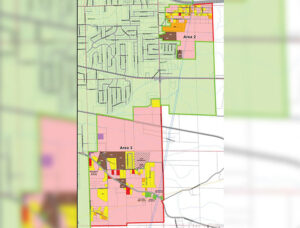North Mississippi hospitals and health care providers will not be “left out of the mix” in future federal health care reform talks, according to First District U.S. Rep. Travis Childers.
Although the U.S. Legislature has not yet begun to discuss the possible reforms, Childers Tuesday spoke with officials at several North Mississippi hospitals in an attempt to “understand their needs and concerns,” the congressman said.
“We believe health care reform is coming soon, and we don”t want rural hospitals to be left out of the mix,” The Democratic congressman said Tuesday afternoon after a meeting with the Baptist Memorial Hospital-Golden Triangle board of directors.
“A lot of people have been asking me what health care reforms are going to come out of Washington. The truth is, nothing has come out and nothing is going to come out right now,” Childers added. “But I don”t want a reform to come down and Baptist Memorial Hospital be looked over because I didn”t understand and voice their concerns in Washington.”
Childers listened on as BMH-GT officials voiced concerns over physician recruitment, retaining doctors and keeping up with heavy patient traffic.
“We have a full-time recruiter, other than myself, and we don”t have a lot of trouble selling Columbus as a good city once we get them here. But getting them here can be challenging,” said BMH-GT Chief of Staff John Reed. “There are just a lot of stumbling blocks when recruiting physicians. But we can do a good job if we keep our hospital solid and solvent.”
A major blow to local recruiting came earlier this year when the federal government enacted new regulations known as Stark III, according to Reed.
The law, enacted Jan. 1, essentially regulates which doctors can and cannot be referred or recruited by hospitals. Specifically, the law limits hospitals from recruiting doctors with certain types of financial relationships with the hospitals.
“For example, We can”t guarantee a physician a position at our hospital if they got their credentials here in the past,” said Reed. “That should be a part of normal recruitment, but instead we are punished for it because it”s a violation of Stark III.
“I suppose its purpose is so hospitals won”t over-incentivize those they already have,” Reed added. “But it”s very complicated, and it”s not helping things at all.”
The regulation may be adding to another cause of the North Mississippi physician shortage, Reed explained. Because doctors can work fewer hours and make more money in large cities compared to small, rural areas, many doctors are locating outside of North Mississippi, he said.
“I personally will have to look at trying to incentivize young people who go through medical school to get them to stay here in North Mississippi,” Childers said after hearing from Reed. “If you talk to a young person who has put 12 or 13 years into medical school, it”s hard to get them to go to rural America.
“If you incentivize them, you can let them agree to come back to serve in a rural setting,” said Childers. “You will end up having some that want to work in a rural setting and some who don”t. But at least it would bring a steady flow of physicians into rural Mississippi.”
Although much of Tuesday”s discussions focused on physician recruitment, BMH-GT Director Paul Cade urged the congressman to consider addressing another hospital staff problem as well.
“One of the key things we”re running into here in Columbus is not getting doctors, but keeping the ones we have,” said Cade. “Primary care physicians are hard to keep around because it”s hard for them to make a living here.
“A lot of the people in medical school right now are specializing in a particular field instead of becoming primary care physicians because they can make more money like that,” Cade added.
Because of the area”s lack of primary care physicians, the BMH-GT emergency room often is used as an urgent care facility, the board said.
“If we had more primary care physicians in the area, there would be less misuse of the emergency room,” Cade said.
Although Childers said he was not sure when health care reform talks would begin in the Legislature, he voiced pleasure with Tuesday meeting, saying it would help him ensure “rural Mississippi and rural America will not slide to the back,” in health care discussions.
“Politics are part of everything, and if reform is going to be successful, both parties are going to have to be a part of it,” said Childers. “I am glad I am able to have meetings like this. I can”t believe all of my colleagues are not interested in hearing input from health care providers before they begin talking about reform.
“I pledge to you that I will continue to support rural physicians. I sincerely hope that whatever reform comes, it”s something I can support,” Childers added. “I hope we can keep what”s right and correct what we have been doing wrong.”
You can help your community
Quality, in-depth journalism is essential to a healthy community. The Dispatch brings you the most complete reporting and insightful commentary in the Golden Triangle, but we need your help to continue our efforts. In the past week, our reporters have posted 36 articles to cdispatch.com. Please consider subscribing to our website for only $2.30 per week to help support local journalism and our community.







